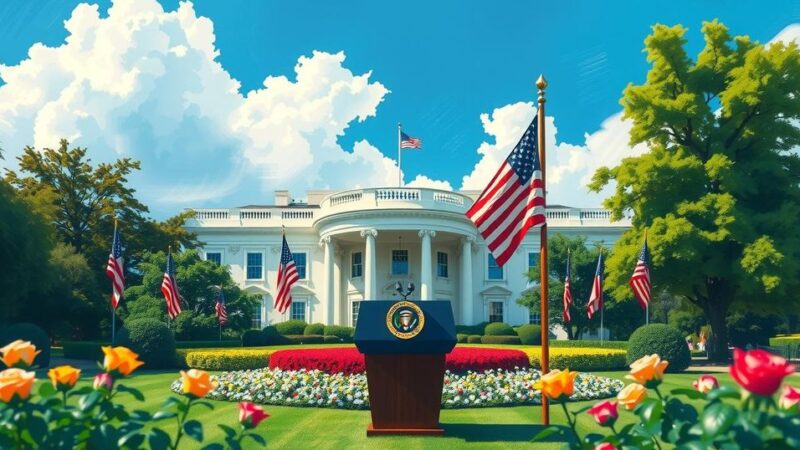In the eastern Democratic Republic of Congo, three Chinese nationals were arrested after authorities discovered 12 gold bars and $800,000 in cash hidden in their vehicle. This operation was executed discreetly due to concerns over illegal mining activities previously involving other Chinese individuals. The region is plagued by mineral resource exploitation and ongoing conflicts, complicating law enforcement efforts.
Three Chinese nationals have been apprehended in the eastern region of the Democratic Republic of Congo after authorities discovered a significant stash of 12 gold bars alongside $800,000 in cash concealed within their vehicle. The operation, conducted in Walungu, South Kivu province, was discreetly executed following the recent release of another group of Chinese individuals accused of managing an illegal gold mining operation. Governor Jean Jacques Purusi indicated that the illicit mineral trade remains deeply intertwined with local and international interests, complicating law enforcement efforts.
The Democratic Republic of Congo is rich in mineral resources, including gold and diamonds, which have been exploited by foreign entities since colonial times, leading to prolonged instability in the region. Militant groups dominate many mining operations, profiting from the sale of these resources to intermediaries. Purusi noted that the clandestine nature of the arrest was necessary as some dealers maintain powerful connections in Kinshasa, thereby complicating the legal landscape regarding such operations.
The governor indicated that the successful arrest was based on a tip-off and emphasized the thoroughness of the vehicle search, where the valuables were ultimately located. Notably, he expressed disappointment over the prior release of a group of 17 Chinese nationals accused of illegal mining in the area, which he believed undermined ongoing efforts to reform the problematic mineral sector in the country. Furthermore, these individuals were reported to have incurred substantial debts to the government amounting to $10 million in taxes and fines, as reported by the Reuters news agency.
The situation is further complicated by ongoing conflict in the neighboring North Kivu province, where territory has been seized by rebels allegedly supported by Rwanda. The Congolese government has intensified scrutiny of international corporations associated with the extraction of conflicted minerals, recently filing a lawsuit against Apple for its alleged role in utilizing these so-called “blood minerals.” Legal representatives for the Congolese administration stated that the ramifications of these activities have included exacerbating violence, financing militias, and perpetuating forced labor practices, thus contributing to environmental damage.
The Chinese embassy has refrained from commenting on these serious allegations. As the Democratic Republic of Congo continues to grapple with the intertwined issues of mineral exploitation, conflict, and governance, the implications of these arrests and the broader situation remain profoundly significant for the region’s future.
The Democratic Republic of Congo boasts abundant natural resources, including a wealth of gold, diamonds, and critical minerals that are essential for modern technology. Throughout its history, particularly following colonialism, these valuable resources have been subject to plundering by foreign powers. This exploitation has led to a cycle of violence and conflict, primarily driven by militia groups that control mining areas. Despite the potential for economic prosperity, the country’s mineral wealth has become a source of instability due to its mismanagement and illegal activities related to mining. The government has made efforts to address these challenges, but corruption and foreign interests continue to undermine the rule of law.
In summary, the recent arrest of three Chinese nationals in the Democratic Republic of Congo highlights the ongoing challenges surrounding illegal mining practices and the exploitation of the country’s mineral wealth. The intersection of local conflicts, international companies, and government policies presents a complex scenario that calls for urgent reforms and deeper scrutiny of the activities within the mineral sector. The operations of militia groups and their illicit dealings continue to threaten stability, thereby complicating the Congolese government’s efforts to reclaim control over its rich resources.
Original Source: www.bbc.com






